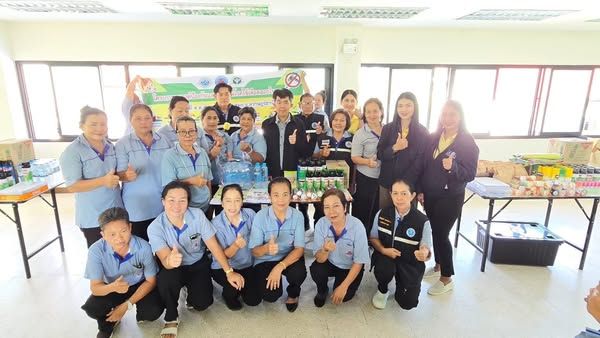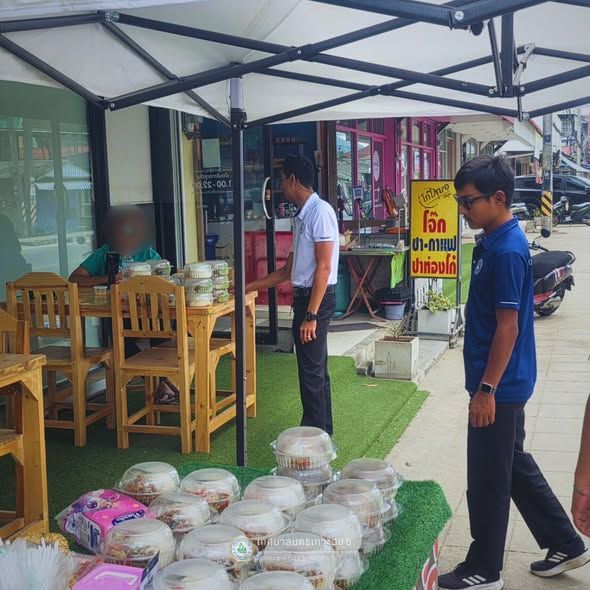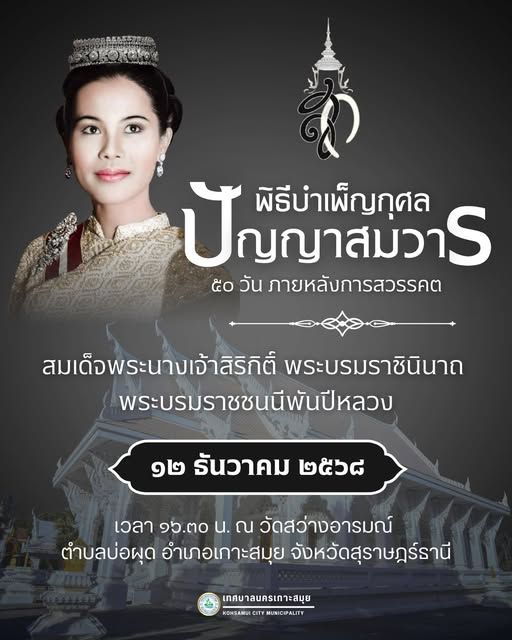Koh Samui is buzzing with a crucial health campaign! On June 14, 2025, Ang Thong Health Promoting Hospital launched an initiative to combat dengue and chikungunya, empowering the community to eliminate mosquito breeding sites for a healthier future.
KohSamui #AngThong #Thailand #TravelThailand #HealthCampaign #DenguePrevention #ChikungunyaPrevention #VisitThailand #TropicalParadise #IslandLife #CommunityHealth #ThaiCulture #SustainableTourism
Background and Objectives
On June 14, 2025, a significant public health initiative was launched at Ang Thong Health Promoting Hospital in Koh Samui District. The campaign focuses on the prevention and control of dengue fever and chikungunya, with a primary goal to reduce the incidence of these mosquito-borne diseases across all age groups. The project also aims to foster greater community awareness and encourage individuals to adopt self-care practices that minimize their risk of infection.
Event Details and Key Participants
The opening ceremony was led by Mr. Banyat Sawetwet, the Chief of Koh Samui District Public Health. The event brought together a diverse group of attendees, including members of the Fund Committee, municipal staff, personnel from the Division of Public Health and Environment, Village Health Volunteers (VHVs), and local residents. Their involvement highlights the collaborative approach being taken to address public health concerns in Villages 3, 4, and 5 of Ang Thong Subdistrict.
Role of Village Health Volunteers
Village Health Volunteers are playing a pivotal role in this campaign. They are tasked with disseminating critical information about dengue fever and chikungunya prevention, identifying mosquito breeding sites within the community, and supporting ongoing surveillance efforts. VHVs also educate families about the importance of eliminating standing water, using personal protective measures such as repellents, and seeking prompt medical care if symptoms arise.
Strategy and Activities
The campaign employs a range of strategies and activities to achieve its objectives:
- Community Education: Organizing workshops and distributing educational materials regarding the symptoms, transmission, and prevention of dengue fever and chikungunya.
- Mosquito Breeding Site Elimination: Mobilizing community members to detect and eradicate potential mosquito breeding sites, such as stagnant water in containers, tires, and plant pots.
- Surveillance Measures: Enhancing disease surveillance to rapidly detect and respond to suspected cases, thereby preventing outbreaks.
- Public Engagement: Encouraging active participation from all residents, particularly in maintaining clean and mosquito-free household environments.
Funding and Support
The campaign is made possible through the support of the Koh Samui Municipality Health Security Fund, which has allocated a dedicated budget for these prevention and control efforts. The fund aids in procuring educational materials, organizing training sessions for VHVs, and implementing environmental management activities throughout the targeted villages.
Broader Public Health Impact
Dengue fever and chikungunya represent ongoing public health challenges in tropical regions such as Koh Samui. Community-level campaigns, such as this initiative in Ang Thong Subdistrict, are essential in reducing the burden of these diseases. By empowering volunteers and engaging the public, these efforts contribute to a safer and healthier environment for all residents.
Frequently Asked Questions
Frequently Asked Questions (FAQ)
What is the main objective of the Dengue Fever Prevention Campaign in Ang Thong Subdistrict?
The campaign aims to prevent and control dengue fever and chikungunya by reducing mosquito-borne disease rates, raising community awareness, and promoting self-care practices to minimize the risk of infection.
Who is involved in the campaign and what roles do they play?
Key participants include the Ang Thong Health Promoting Hospital, Koh Samui District Public Health officials, Village Health Volunteers (VHVs), municipal staff, and local residents. VHVs are pivotal in educating the community, identifying mosquito breeding sites, and supporting disease surveillance.
What strategies are used to eliminate mosquito breeding and prevent disease spread?
The campaign uses community education, organized workshops, distribution of educational materials, and encourages the elimination of stagnant water sources. Surveillance measures and public engagement ensure active participation in maintaining clean, mosquito-free environments.




